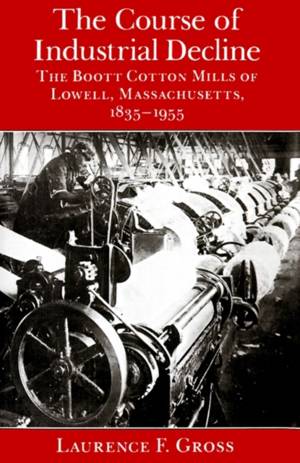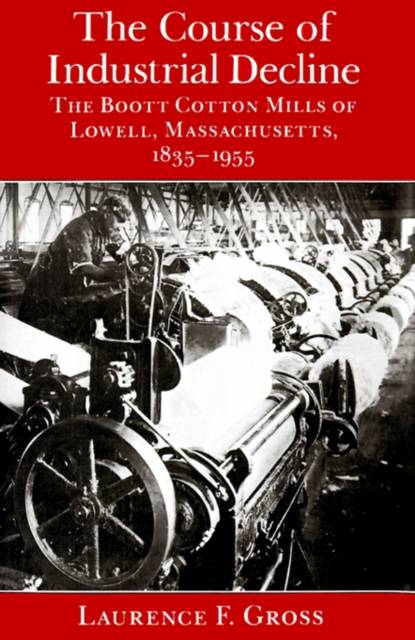
- Afhalen na 1 uur in een winkel met voorraad
- Gratis thuislevering in België vanaf € 30
- Ruim aanbod met 7 miljoen producten
- Afhalen na 1 uur in een winkel met voorraad
- Gratis thuislevering in België vanaf € 30
- Ruim aanbod met 7 miljoen producten
The Course of Industrial Decline
The Boott Cotton Mills of Lowell, Massachusetts, 1835-1955
Laurence F GrossOmschrijving
Studies of American industry frequently cite Lowell, Massachusetts, as an early model for business practices. Scholars have sought to explain the city's rise to prominence, the impact of its textile mills on workers and on commerce, and its part in regional development and American prosperity. Laurence Gross looks beyond these issues. Focusing on Lowell's Boott Cotton Mills, he examines the industry's struggle to maintain its prominence, the causes of its decline, and its ultimate flight south.
Gross puts much of the blame for the pattern of events on the mill-owners themselves. They resisted reinvestment, so their operations became less efficient. They kept antiquated machinery running long after it was safe to do so, and they were slow to respond to issues of worker safety. The increased textile demands of World War II, Gross explains, only forestalled the mills' inevitable demise.
Specificaties
Betrokkenen
- Auteur(s):
- Uitgeverij:
Inhoud
- Aantal bladzijden:
- 320
- Taal:
- Engels
- Reeks:
- Reeksnummer:
- nr. 15
Eigenschappen
- Productcode (EAN):
- 9780801863639
- Verschijningsdatum:
- 1/02/2000
- Uitvoering:
- Paperback
- Formaat:
- Trade paperback (VS)
- Afmetingen:
- 155 mm x 230 mm
- Gewicht:
- 489 g

Alleen bij Standaard Boekhandel
Beoordelingen
We publiceren alleen reviews die voldoen aan de voorwaarden voor reviews. Bekijk onze voorwaarden voor reviews.











